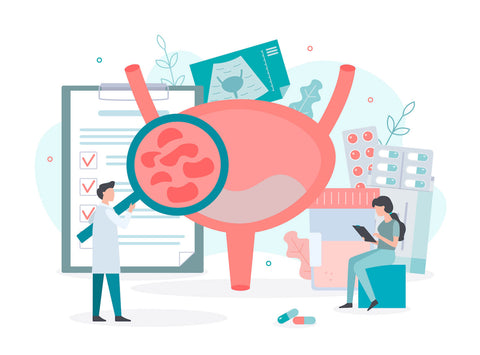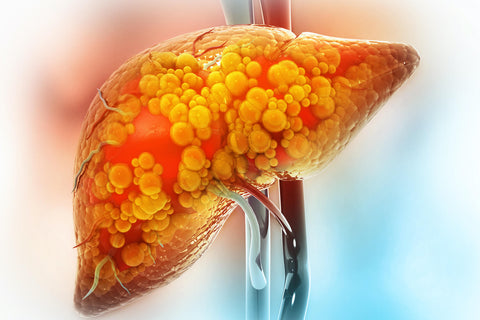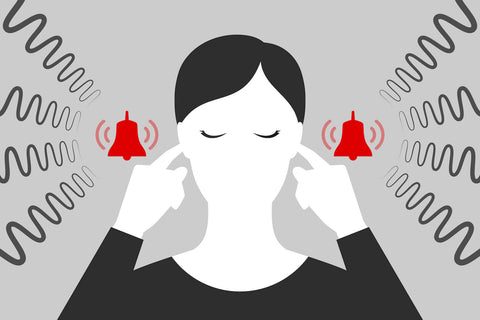The thyroid is a small, butterfly-shaped gland at the front of your neck. As part of your endocrine system, the thyroid controls bodily functions by producing and releasing hormones. The thyroid’s main job is to control the speed of your metabolism, growth, and development by controlling the processes for turning food into energy.
According to the American Thyroid Association (ATA), more than 12% of the U.S. population will experience a thyroid condition at some point in their lives. Yet, as many as 60% of people are unaware that they have a thyroid condition. Statistically, poor thyroid health is linked to a wide range of long-term ailments ranging from health issues to mental health issues. Getting ahead of your thyroid health and understanding the risks of poor thyroid health is crucial to living a long and healthy life.
When the thyroid gland doesn’t produce enough thyroid hormone, a condition known as hypothyroidism occurs; while hypothyroidism can be managed with medication, untreated or poorly managed thyroid health can lead to serious long-term health complications. Here, we will review the long-term effects of poor thyroid health and solutions for optimal thyroid health.
Cardiovascular Health
One of the most common long-term effects of poor thyroid health is its impact on your cardiovascular health. Thyroid hormones are crucial to maintaining your heartbeat, blood pressure, and cholesterol levels. As a result, a malfunctioning thyroid gland can cause heart problems or exacerbate symptoms of preexisting heart disease. Insufficient thyroid hormone can contribute to:
High cholesterol: When there are low levels of thyroid hormone, the body cannot break down and get rid of LDL cholesterol. This excess of cholesterol causes arteries to narrow and harden, increasing the risk of heart attack and disease.
Heart Disease: Fatty deposits from high cholesterol levels can contribute to developing and worsening heart disease. Hypothyroidism affects heart rate, blood pressure, and the overall muscle structure of the heart. These factors can increase the risk of heart attacks or low heart rate.
Heart Failure: Insufficient thyroid hormones can cause slow heart rhythms and low blood pressure due to their inability to pump blood throughout the body. Excess thyroid hormones can cause hypertension and heart arrhythmias, eventually leading to cardiac arrest.
Fertility and Pregnancy Issues
Because thyroid hormones affect bodily functions and interfere with other hormonal bodily processes, infertility is a common long-term effect of hypothyroidism. Low thyroid hormone levels can affect how eggs release themselves from the ovary in females. Females with hypothyroidism often experience difficulty conceiving as the body struggles to release eggs during menstruation.
Untreated hypothyroidism not only makes it difficult to conceive but also increases the chances of miscarriage, preeclampsia, or premature birth in pregnant women. Hormonal effects, in conjunction with the cardiovascular effects of hypothyroidism, make pregnancy and conception a risky and challenging process.
Mental Health Issues
Cognitive and mental illnesses are commonly linked to thyroid dysfunction. As an endocrine hub, the thyroid gland's functionality can cause various symptoms that affect mental health. Common thyroid problems that exacerbate mental health issues are:
Hypothyroidism: When the thyroid produces low hormones, your metabolism can slow down and cause you to become weak and sluggish. This drop in metabolism can make it difficult to lose weight and affect your energy levels, leading to depression and anxiety.
Hyperthyroidism: When the thyroid produces too much hormone, your cardiovascular system can become highly active, speeding up your heart rate. As a result, you may feel weak or irritable from the increased blood flow and experience cognitive impairment.
Other Long-Term Effects of Thyroid Malfunction
In addition to cardiovascular, fertility, and mental health issues, thyroid malfunction can cause a variety of other problems. While there are many more potential long-term effects, some common ailments in those with thyroid malfunction are:
- Joint pain
- Muscle weakness
- Weight gain
- Hair loss
- Dry skin
- Weak or brittle nails
If you are experiencing the following, visit a healthcare provider for treatment and diagnosis. Scheduling annual visits helps you and your doctor detect early signs of thyroid malfunction and determine the best way to treat and reduce symptoms and long-term effects.
Managing Thyroid Malfunction
Once diagnosed by a doctor, you must maintain optimal thyroid health to prevent long-term effects. Self-medication is typically advised against, as the sensitive conditions of hypothyroidism and hyperthyroidism can affect the body’s delicate balance. However, once it is determined which condition you have, managing symptoms can be explored through multiple avenues of at-home treatment.
Maintaining a healthy diet with exercise, managing stress, and getting enough sleep are just some lifestyle changes you can make to manage thyroid malfunction. Whole foods such as fruits, vegetables, lean proteins, and whole grains are great additions to your diet as they are full of nutrients that assist and optimize the body’s processes and contribute to your body’s overall health. Combining diet with exercise allows the body to build and strengthen the cardiovascular system and relieve stress, lessening the impacts of thyroid malfunction on your heart and body.
In cases where lifestyle changes aren’t enough to manage thyroid symptoms, all-natural health supplements can be a great way to get the nutrients you need to manage thyroid dysfunction. Supplements such as PhytAge Laboratories’ Thyroid Rescue 911 are a great addition to lifestyle changes for thyroid health. All-natural ingredients such as iodine, selenium, and zinc can be increased through supplementation to ensure you meet your body’s daily requirements. While supplementation is not a cure-all, it is a viable avenue for maintaining thyroid conditions holistically and naturally.

 Cart
Cart



















































 1-800-822-5753
1-800-822-5753
